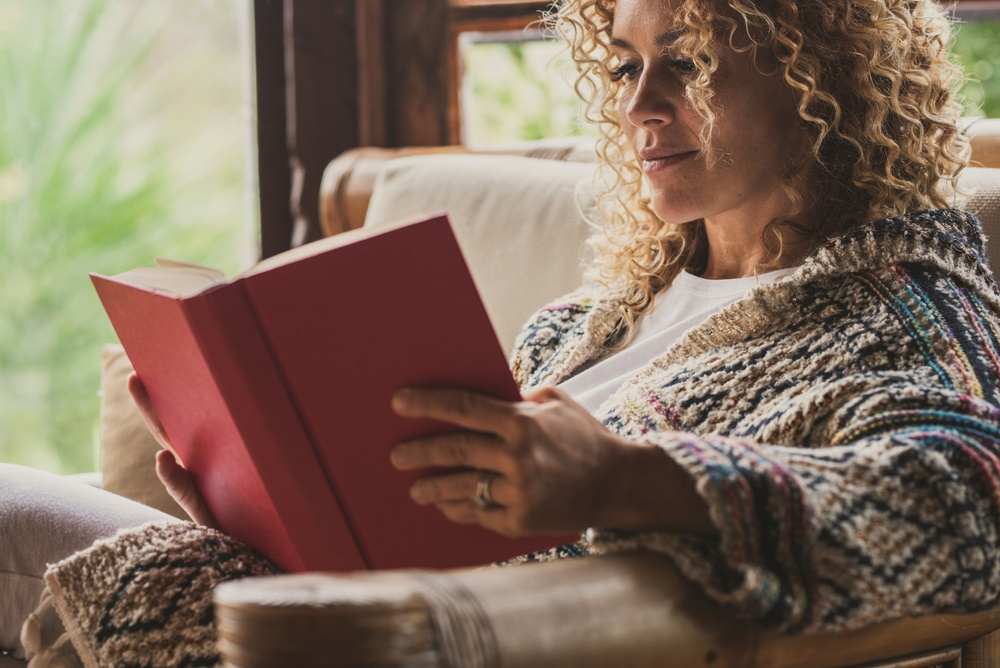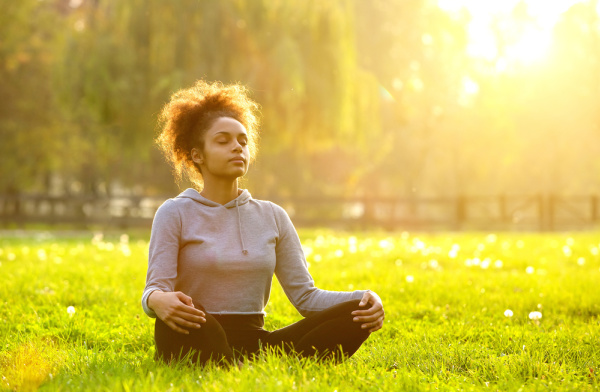The rewards of mindful reading
The rewards of mindful reading
The rewards of mindful reading
-
Hannah
-
Hannah

A common New Year’s resolution for book lovers is this:
This year I will read more books.
It’s a wonderful idea in many ways. It means doing more of what we love. It means learning more, experiencing more, dreaming more through the medium of reading. It means spending many a happy hour browsing in libraries and bookshops.
And yet… how helpful is it to have a teetering ‘to be read’ pile? Does looking at that pile thrill us – the promise of all those hours of pleasure – or does it feel more of a burden, something we must get through?
There is plenty of guidance around on how to read more books by reading faster. Lifehack, for example, tells us that ‘Reading 200 Books a Year Is Possible If You Master These Two Skills’, the skills being to avoid vocalisation of the words in your mind through ‘forc[ing] yourself to read faster’, and to not care about the detail but just try to get the main concept.
I am reminded of this quote by Woody Allen:
I took a speedreading course and read War and Peace in 20 minutes. It involves Russia.
How much we miss in a book when we read it quickly. We are cheating ourselves, I feel; we are missing out and diminishing the pleasure.
So it is, really, with most things in life. When we rush along the street, we miss out on taking in the beautiful nature or architecture all around us, and connecting with other people who are out and about. When we race through cooking a meal, we lose the opportunity to really engage with the task, to breathe in the lovely aromas, to taste ingredients, to look forward to eating our creation.
Mindfulness teachings, from the traditions of Buddhists and Tibetan monks, teach us to stop dashing about. To slow down. To be really present in the moment without judgement. Practising mindfulness has been proven to foster better mental and physical wellbeing; researchers at Harvard University have even found that it changes how the brain works.

We can practise mindfulness in many areas of our life, including our reading. I have found that reading mindfully very much increases the pleasure of reading. I am immersed in the book, letting go of thoughts and feelings about other things in life. It is peaceful and calm; there is no urgency at all. I am more engaged with the words; I take it all in. With fiction, my mind paints vivid, detailed pictures and I am swept away into the story. With non-fiction, I am engrossed and afterwards I retain the knowledge well.
There are other benefits of reading slowly, mindfully, as well. How about the sound of the words vocalised in your mind? Author Elizabeth Strout says that she reads slowly ‘partly to savour every word’. She explains:
The way a sentence sounds to my ear is so important to me in the whole reading experience, and I always want to get it all – like when you read poetry.
English and cultural history professor Joe Moran considers the generosity of spirit in mindful reading:
Slow reading feels to me like a more generous, collegiate form of reading – rather as listening is a more generous act than speaking, and more difficult. Slow reading gives someone else (the writer) the gift of your time, without any guaranteed return, and with the risk that you will be bored or discomforted by the writing’s strangeness or difficulty. Slow reading is a gradual encounter with the obdurate otherness of another person’s mind. Like any such encounter, it should take as long as it takes and be its own end.

Why do we read? To relax, to be inspired, to be educated, to be connected. All of these rewards are heightened when we really devote ourselves to the reading; when we make the space and time to read with all our attention, with a mind that is open and enquiring and present.
So perhaps instead of aiming to read more books this year, we should read fewer books. Slowly. Quietly. Mindfully.
As the American philosopher Mortimer J. Adler put it:
In the case of good books, the point is not to see how many of them you can get through, but rather how many can get through to you.
Picture credits: simona pilolla 2/Shutterstock; 2) mimagephotography/Shutterstock; 3) Impact Photography/Shutterstock.